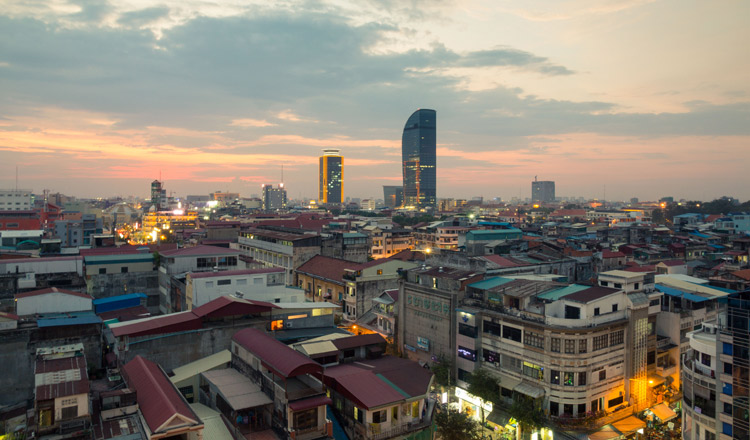Cambodia – Economy to grow by 7 percent in 2018: IMF
According to the latest forecast from the International Monetary Fund (IMF), Cambodia economy will grow by 7 percent this year on the back of higher public spending and steady growth in construction and tourism.
The IMF’s forecast is slightly higher than the figure released by the Cambodian government, which set growth at 6.9 percent.
Data used for the projection was compiled during a fact-finding mission on March 12-16 lead by Jarkko Turunen, the deputy division chief. During the visit, the IMF team held discussions with key officials and economic players on the latest development in the country and its economic outlook.
In a statement released on March 17, Mr Turunen said the new growth rate projection is the result of higher public spending and robust economic activity in the construction and tourism sectors.
Other factors include declining inflation, which slowed down to 2 percent in January; a stable current account deficit, which equalled 8.4 percent of gross domestic product (GDP) in 2017; as well as growing foreign reserves, which, in the beginning of the year, reached $8.9 billion.
“Cambodia’s economic outlook remains positive, but is subject to downside risks,” Mr Turunen said in his statement.
“Macro-financial and external risks remain significant and political uncertainties could dampen consumer and investor sentiment. On the upside, stronger global growth may increase foreign demand for goods exports and tourism.
“Policies should focus on managing macro-financial risks, safeguarding fiscal sustainability and advancing reforms to support growth, resilience and inclusion.”
The Cambodian government’s own growth projection is 6.9 percent, which it attributed to the strong performance of the agriculture and service sectors, as well as robust industrial activity. GDP per capita, the government said, will reach $1,569 by the end of the year.
“With strong economic growth, our level of dependency on foreign nations will be reduced, helping us attain full control of our own economy,” Vong Seyvisoth, Secretary of State at the Ministry of Economy and Finance, said during a forum on the national budget for the year 2018 held in January.
According to the statement from the IMF, bank credit growth moderated to 17.2 percent in January, despite an increase in lending in the real estate and construction sectors, which continue to outpace other sectors when it comes to credit growth.
The statement also welcomed recent credit risk and capital buffer regulations, which, it said, are necessary measures to build resilience.
It added that the general government deficit is estimated to have widened to 2.6 percent of GDP in 2017, as continued revenue growth was offset by higher spending.
However, government deposits, a key fiscal anchor, increased to 12.6 percent of GDP, while the external debt remained relatively low at just $6.6 billion, or about 30 percent of GDP, at end of 2017.
“The 2018 budget includes further increases in public wages and capital spending, highlights education, health and social protection among priority development areas, and targets a higher deficit at about 5 percent of GDP,” it said.
“A medium-term budget framework with a new revenue strategy is needed to safeguard fiscal sustainability.”
Public expenditure this year will amount to $6.4 billion, an increase of 15 percent over the year 2017, with the government planning to collect more than $4 billion in taxes, according to the national budget for 2018.
Source: http://www.khmertimeskh.com/50114978/economy-to-grow-by-7-percent-in-2018-imf/


 English
English




